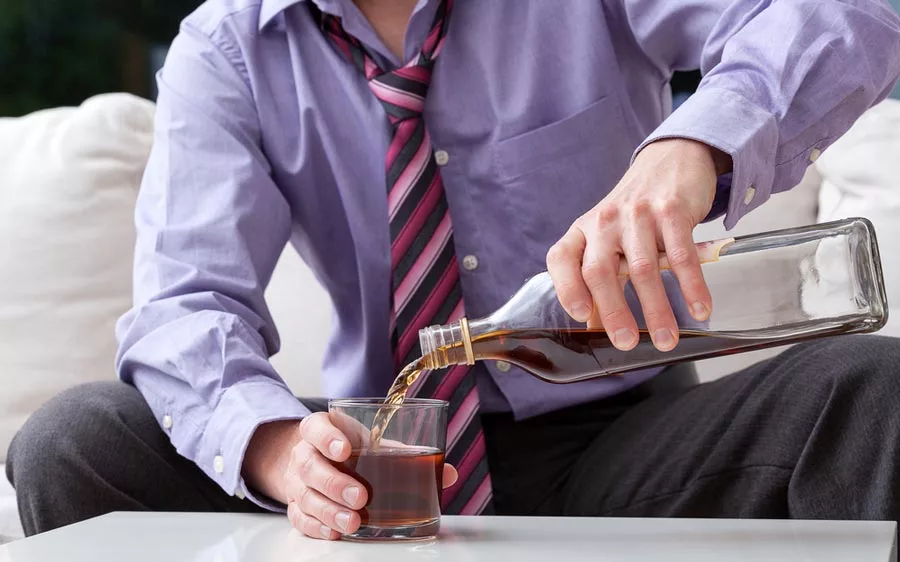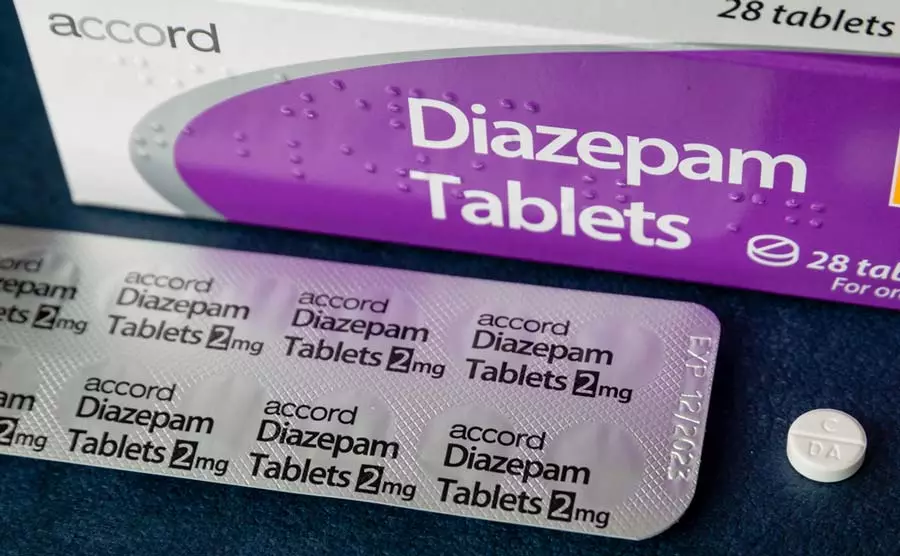Overcoming Alcohol Dependence in a Safe Environment
Detox from alcohol occurs when a heavy drinker abruptly cuts back or quits drinking. Drug detox and withdrawal symptoms are unpleasant. Alcohol, however, is one of the few substances where withdrawal symptoms can be lethal.
Alcohol detox and withdrawal can be managed safely. To successfully overcome an alcohol addiction, professional help should be sought out rather than attempting a “cold turkey” or other self-directed methods of abstinence.
Keep reading to learn about effective means of alcohol detox, and our programs for alcohol abuse treatment at Catalina Behavioral Health!
Medical Detox Hotline – Get Immediate Help!
When Does Alcohol Detox Begin?
Any substance withdrawal symptoms occur when the body has developed a physiological dependence on the drug or alcohol. If you drink 10 cups of coffee every day, for instance, and then try to cut back suddenly, you may get withdrawal symptoms like headaches.
Because alcohol is a depressant of the central nervous system, it alters the way a person’s brain normally functions. One’s brain produces more GABA (a neurotransmitter that contributes to feelings of calm and euphoria) and less glutamate after consuming alcohol (a neurotransmitter that makes you feel excitable).
Your brain will compensate by creating less GABA and more glutamate over time. The neurotransmitter imbalance is exacerbated when alcohol use is suddenly cut off because the brain is unable to compensate in time. This is the root cause of withdrawal symptoms during alcohol detox, including agitation and shaking.
There are a number of factors that can affect whether or not you have withdrawal symptoms when you stop drinking. Consider the following list.
Will I Experience Alcohol Withdrawal Syndrome?
The following factors contribute heavily to your chances of experiencing alcohol withdrawal symptoms during alcohol detox.
- How much do you drink in a day?
- For how long have you been engaging in abuse?
- How abruptly did you quit drinking (did you ween down?)
- Any additional co-occurring disorders?
Alcohol withdrawal symptoms are more common in people who have been engaging in alcohol abuse for longer periods of up to a year or more.
The Most Common Alcohol Withdrawal Symptoms

Alcohol withdrawal symptoms can range from uncomfortable to potentially fatal. Common, mild symptoms of alcohol withdrawal include:
- Tremors
- Anxiety
- Nightmares and other sleep issues
- Nervousness
- Stomach cramps
- Headache
- Fatigue
- Sweating
- Poor diet
For the most part, alcohol detox and withdrawal symptoms are moderate. In many cases, paying attention to nutrition and diet can help with quitting alcohol and reducing side effects. However, about 10% of people experience more severe and perhaps fatal symptoms during alcohol detox. Among these severe symptoms of alcohol withdrawal are:
- Fever
- Experiencing rapid breathing
- Extreme perspiration
- Confusion
- Seizures
- Hallucinations
Get medical help right away if you’re experiencing any of these life-threatening symptoms. If left untreated, there is a potential for a life-threatening situation.
Getting Help with Alcohol Detox
Detox centers and hospitals, among other facilities recognized by the Substance Abuse Mental Health Services Administration (SAMHSA), are common settings for alcohol detox, as these are where clients go when their alcohol abuse symptoms have reached a crisis point.
Medical professionals commonly use the Clinical Institute Withdrawal Assessment of Alcohol Scale (CIWA-Ar) to evaluate the severity of alcohol withdrawal. Different symptoms, such as nausea, hallucinations, and anxiety, are evaluated using the scale.
Your doctor may also perform a physical examination to gauge the severity of your withdrawal symptoms and alcohol use disorder. They may look for symptoms such as rapid or irregular heart rate, high temperature, and dehydration.
Alcohol Use Disorder and Detox Timeline
The onset, duration, and intensity of withdrawal symptoms depend on the individual and the circumstances in which the alcohol use disorder might occur. Within a week, most individuals feel better. However, many people go through withdrawal in three stages.
Detailed descriptions of each phase, along with a brief overview of the entire process, may be found on the list below:
- The first phase usually begins within 6 hours and can extend for up to 3 days.
- The second phase typically begins after the first 48 hours and continues for up to 5 days.
- The third and final phase often begins after 5 days and lasts for up to 10.
Initial Onset (Phase 1)
Initially, you may have only mild symptoms.
Within 6 hours following your last drink, you may start to feel the effects of alcohol withdrawal. A person may experience slight discomfort initially. However, mild withdrawal symptoms quickly segue into more severe side effects like delirium tremens.
- Nausea
- Tremors
- Delirium Tremens (DT’s)
- Blood pressure fluctuations
- Anxiety
- Difficult time sleeping
After experiencing these signs of alcohol withdrawal and abstaining from active drinking during their alcohol use disorder, these side effects go away.
The following is the outlook for when the most intense effects manifest:

Seizures (Phase 2)
Epileptic seizures and other life-threatening symptoms may appear in the second phase.
Seizures and other dangerous symptoms typically appear within the first 48 hours after a person has stopped drinking. Seizures and tremors affect more than 5% of people who go through alcohol withdrawal without medical intervention. After the first 48 hours, moderate symptoms are to be expected if you haven’t experienced any severe ones. It is still possible, though, that you will develop them in the future; if this occurs, you should contact a doctor immediately.
Second-stage alcohol withdrawal symptoms are at their worst between 24 and 72 hours after a person’s last drink.
Delirium Tremens (Phase 3)
During the third phase, delirium tremens may set in.
About half of those who experience withdrawal seizures also end up with DTs. After abstaining from alcohol for 3-5 days, DTs typically manifest. As a result, the first few days sober are the most difficult and sometimes life-threatening. During this time, if you experience any of the signs and symptoms of DTs, it is crucial that you consult a doctor.
The duration of the alcohol withdrawal stage three is typically two to three days, extending up to about 7 to 10 days in total.
Post-acute withdrawal could represent a potential fourth phase.
Post Acute Withdrawal Symptoms
Post-acute alcohol withdrawal symptoms might last for a week or more after a person stops drinking. The acronym “PAWS” refers to this condition after the first withdrawal period has ended. Those suffering from PAWS may experience ongoing difficulties sleeping and coping with their emotions.
During PAWS, even after a year, some people experience symptoms of alcohol withdrawal.
The duration of alcohol withdrawal stage four varies from person to person but is often between six months and two years.
Is Death Possible During Alcohol Detox?
If you try to go through alcohol withdrawal on your own, you could die. This is why substance abuse treatment and alcohol rehab are necessary when attempting to overcome alcohol dependence.
The following conditions are associated with alcohol withdrawal and are potentially fatal, notwithstanding their rarity. Get medical help right away if you experience any of the signs and symptoms of these diseases and disorders.
About 2% of alcoholics get DTs when they try to quit drinking, making it the most severe form of alcohol withdrawal. Some of the signs of DTs are:
- Hallucinations, both auditory and visual
- Extreme confusion
- Rapid shifts in emotion
- Impulses
- Extreme perspiration
- Hyperthermia and/or fever
- Symptoms of grand mal seizures include involuntary muscle contractions and a loss of consciousness.
- Agitation
- Drowsiness or exhaustion
Although DTs are not always fatal, they still pose a serious risk. Those infected with DTs face a fatality risk of up to 25%. However, that figure is drastically reduced among those who seek treatment for their symptoms.
More On Alcohol Related Seizures
Seizures caused by alcohol withdrawal often precede DTs, which can be fatal in extremely rare circumstances. A of clients who experience seizures during withdrawal will go on to develop DTs, making it crucial to monitor this symptom closely.
Cardiovascular collapse
Because of how alcohol works in the body, detoxing from it can cause cardiac issues. This is especially the case if you’re dealing with DTs as you detox.
Research is needed to better understand the causes and effects of deadly cardiac failure during alcohol abstinence.
Is At-Home Detox from Alcohol Safe?

Substantially decreasing the risks associated with alcohol withdrawal is possible when patients are under the watchful eye of a medical professional. In a hospital or detox center, you will have access to trained medical personnel around the clock to ensure your safety and comfort.
If you have a high chance of having DTs, you should be extra cautious about going through alcohol withdrawal without medical care. Among the things that could put you in greater danger include the following:
- If you’re a lifetime drinker
- You have experienced withdrawal and DTs previously.
- You either currently experience or have a history of seizure activity.
- You have any type of infection
How Do You Know When You Need Medical Attention?
Ultimately, a healthcare expert is best suited to evaluate the likelihood that you will experience difficulties related to alcohol withdrawal, such as DTs. To ensure that even minor withdrawal symptoms don’t escalate into something more serious, medical supervision is essential.
Managing Alcohol Withdrawal: What You Need to Know
With proper medical supervision, alcohol withdrawal can be managed without serious consequences. As was previously indicated, getting help is significantly safer than attempting alcohol withdrawal alone. A medical professional can advise you on whether you can handle the procedure at home or whether you need to go somewhere else for care.
24 Hour Alcohol Addiction Hotline
Treatments for Alcohol Withdrawal Symptoms
Medication is one of the first lines of defense against potentially fatal alcohol withdrawal symptoms like DTs. Benzodiazepines, a type of anti-anxiety medicine, are commonly used for the treatment of DTs and for easing the brain’s transition into life without alcohol. This can help slow the development of more severe withdrawal symptoms.
A variety of drugs, including antidepressants, are available to treat the physical and mental distress that can accompany long-term alcohol abuse and the detox process. Nutrient-deficiency vitamins and anticonvulsants (medications used to treat seizures) are examples.
Before a successful withdrawal, you may be offered medications to help you avoid drinking. Around 10-30 hours after the last drink, you may experience the worst of the withdrawal symptoms from detox, with the discomfort gradually easing by 40-50 hours.
While aspiration pneumonia is uncommon in people with delirium tremens, it affects about 30% of individuals who have the condition. A medically assisted withdrawal lessens discomfort, monitors the client’s health, and lessens the risk of serious repercussions.
Medication for Alcohol Withdrawal

To alleviate some of the more severe withdrawal symptoms, certain drugs may be given during alcohol detox at an inpatient treatment center. The potential for serious consequences can be reduced with the use of medication that maintains a healthy balance of substances in the body.
At the rehabilitation center, a doctor or nurse will give you your medication and keep an eye on you to make sure it’s having the desired impact. It is possible to switch to a different treatment if the drug starts to have unfavorable effects or if it slows down the detox process.
During detox, many people use drugs like:
Benzodiazepines
When detoxing from alcohol, benzodiazepines (benzos) are typically used to relieve withdrawal symptoms. Some doctors may recommend them for sleeplessness, anxiety, or muscle spasms because of their sedative effects on the central nervous system. The drug is available in both short- and long-acting varieties.
Long-acting benzodiazepines are often given for a period of three days or taken as needed. The two most commonly given benzos for inpatient rehabilitation are chlordiazepoxide (Librium) and diazepam (Valium) although Klonopin and Xanax for alcohol withdrawals are occasionally used as well.
Naltrexone
As part of the detox process, Naltrexone can be used to lessen alcohol cravings. The euphoric effects of alcohol can be prevented by taking naltrexone in the case of a relapse. You should wait 7-10 days before taking naltrexone because it can trigger withdrawal symptoms.
You can get it in tablet form or as an injection. ReVia and Depade are the brand names for the oral pill and injectable solution forms of naltrexone, respectively.
Acamprosate
Heavy drinking over a period of years can affect brain structure and function. Prescribed acamprosate, marketed under the brand name Campral, can restore normal brain function in alcoholics.
Scientists have begun investigating whether or not acamprosate alleviates sleeplessness, nervousness, and agitation associated with PAWS. It helps lessen the desire to drink alcohol for alcoholics in recovery, although drinking alcohol while taking this medication has no negative side effects.
Disulfiram
Disulfiram is another drug prescribed for alcoholics. Disulfiram functions differently than other drugs in that it causes significant reactions if alcohol is ingested. The side effects of disulfiram include flushing of the face, nausea, headache, weakness, and low blood pressure if you drink while taking the drug.
The side effects are intended to serve as a deterrent, making you think twice about maintaining your current drinking routine. Disulfiram’s purpose is not the same as that of other drugs that claim to treat alcoholism and restore cognitive abilities.
Alternative forms of possible relief during detox from alcohol may also include the following:
ICU Care

Inpatient therapy at a hospital or other facility specializing in alcohol withdrawal may be necessary for people experiencing moderate to severe withdrawal symptoms. All symptoms of delirium tremens, including hallucinations, will be constantly monitored.
Possible treatments include:
- Constantly checking vital signs like blood pressure, pulse rate, and blood concentration of various chemicals
- IV therapy refers to the intravenous administration of drugs or fluids (by IV)
- Medication sedation through the duration of withdrawal
Outpatient Care
It is common practice to provide outpatient care for people experiencing mild to moderate alcohol withdrawal symptoms. You’ll want to have someone nearby to keep an eye on you while you go through this. You should plan on seeing your doctor every day until you feel stabilized.
In most cases, treatment will consist of the following:
- A sedative to help with the withdrawal symptoms
- Long-term alcoholism treatment includes talking sessions with the patient and their loved ones.
- Testing for additional challenges
You need to move into a facility that will encourage your sobriety. Those attempting to maintain their sobriety can find helpful housing choices in some places.
In order to recover from alcohol withdrawal, long-term abstinence is recommended.
Recovery Groups and Other Resources for Sober Support
The following groups can be helpful in learning more about alcoholism, as well as in providing resources and actual meeting places where a sober support system can begin to take form:
- AA (aka Alcoholics Anonymous)
- Alateen
- National Institute on Alcohol Abuse and Alcoholism
- SMART Recovery
- Alcohol and Drug Abuse Treatment Services at the Substance Abuse and Mental Health Services Administration (SAMHSA) A clearinghouse of resources from the government
Gaining Lasting Sobriety from Alcohol
The severity of one’s condition and one’s ability to abstain from alcohol entirely determine one’s prognosis. Acute alcohol withdrawal syndrome (AWS) can range from being a mildly uncomfortable disorder to a potentially fatal one.
Problems sleeping, mood swings, and exhaustion might linger for weeks or months. Heavy drinkers risk a host of medical issues, including cardiovascular and neurological issues, if they don’t cut down or quit.
Most alcoholics who go through withdrawal are able to get sober again. In extreme cases, such as delirium tremens, however, death is a real possibility.
Alcohol Detox at Home: What You Need to Know

In most cases, receiving help from a professional is the first step toward reducing alcohol consumption.
At Catalina Behavioral Health, we’re always available to help as an alternative to alcohol detox at home.
Reducing Your Intake
This information about alcohol detox at home can be helpful if attending rehab is not possible.
Be sure to read and heed the guidance, and have the number of an ambulance handy at all times.
In the case of an alcoholic who is physically dependent on alcohol, cutting back too quickly might be fatal. You could instead attempt cutting back on your alcohol use gradually over the course of a few weeks.
A little forethought is required, but this is far safer than a sudden halt.
It will be much easier to quit drinking altogether if you gradually reduce your consumption first.
We propose the following method:
- To begin, start a drinking log.
- Learn your daily drinking total before attempting to reduce your alcohol intake.
- Try keeping a drinking diary for a week without altering your consumption rate.
- To get started, make a list that includes: the type of drink, the time of day you drank it, and the amount of alcohol in it.
- If you’re drinking from a can or bottle of beer, the number of units should be printed on the side; if you’re drinking from a bottle of spirits or wine, measure each drink, so you know how much you’re having.
Here’s a visual guide of what a single serving of several popular beverages looks like:
Maintain and Decrease
After you have maintained your current drinking level for a week, you can begin to gradually reduce your alcohol consumption.
First, try cutting back by 10% every day.
If you typically consume 20 units per day, you may try lowering it to 18 units per day.
Maintain this reduced intake for another four days, and then attempt a further 10% reduction.
You are cutting back too quickly if you begin to experience withdrawal symptoms. If you’ve recently found that your current drinking amount is safe, stick with it for another week. Reduce your weekly intake by 5% instead of 10%.
When your daily alcohol consumption drops below 10 units, you may want to consider cutting it in half or stopping entirely at that point.
Additional Tips
- Reduce the potency of your drink gradually. Change out a case of high volume beer for a case of lighter beer, for instance.
- To dilute your cocktails, add water or a mixer. You might also try mixing things up by having one non-alcoholic drink for every alcoholic one.
- Avoid sweets and load up on whole grains like brown rice and whole wheat bread to eat healthily. Vitamin B1 (thiamine) levels will be helped by these.
- Thiamine (vitamin B1) supplements are recommended. Aim for three doses of 100 milligrams of thiamine daily. If you don’t have any on hand, you can find it at any number of virtual health food stores.
- Don’t forget to drink lots of non-alcoholic fluids, but steer clear of caffeine and other stimulants that can keep you up at night.
24 Hour Addiction Hotline – Call Now!
Warning: Cold Turkey Detox Can be Deadly
It’s important those around you know that you’re attempting at-home detox and what to do in case of an emergency.
Warn your housemates to dial 911 if you experience any of the following symptoms:
- Experience DTs
- Become confused
- Get dizzy, lose your balance, and start hallucinating (imagining things that aren’t there)
Dangerous withdrawal symptoms are possible when alcohol use is suddenly stopped.
Avoid going cold turkey on your alcohol if you’re prone to seizures or hallucinations when you try to stop drinking.
Overcome Problems with Alcohol and Get Sober
At Catalina Behavioral Health, we deal with multiple forms of alcohol addiction daily and have helped countless clients overcome their challenges. If you’ve never gone through detox, we’ll help you get familiar with the process, so you’re comfortable with your surroundings.
For more information on how we can help you overcome alcohol detox, contact a member of our Admissions team today!





